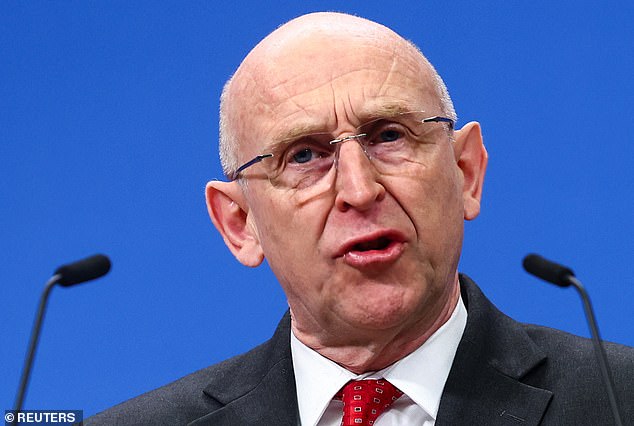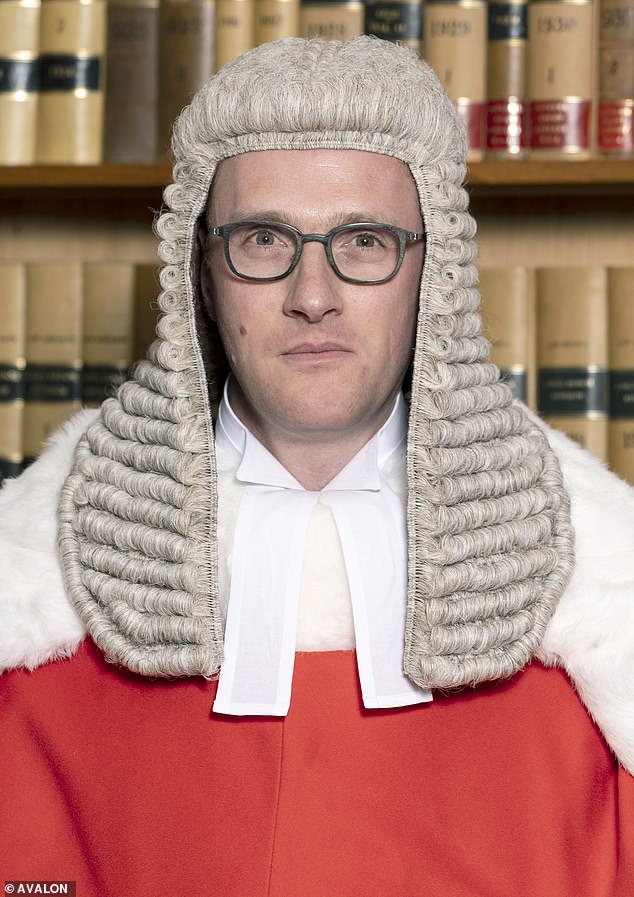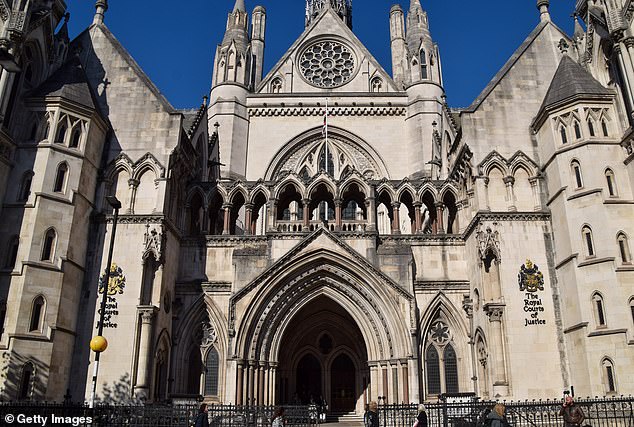Defence Secretary John Healey was briefed in April about the likely outcome of the Ministry of Defence’s review into the Afghan airlift – three months before the super-injunction was lifted, The Mail on Sunday can reveal.
The judge has expressed ‘concern’ over the MoD’s sluggish pace in bringing its review to court.
The Mail fought for two years in secret courts to reveal the Government’s covert airlift of thousands of Afghans after it put 100,000 ‘at risk of death’ by leaking a database of those who had applied for UK sanctuary.
During the news blackout, last October ministers signed off a £7billion plan while parliamentary scrutiny was ‘in the deep freeze’.
After the draconian court order was finally lifted last Tuesday, Mr Healey told the Commons: ‘I have felt deeply concerned about the lack of transparency to Parliament and the public.’
He said he had commissioned an internal review by civil servant Paul Rimmer at the beginning of the year, to test whether the threat to Afghans was still as bad. The review was handed to Mr Justice Chamberlain at the end of June.
But The Mail on Sunday understands from informed sources that Mr Rimmer was giving the Defence Secretary regular updates and that, by April, Mr Healey was aware of his report’s likely conclusions – that the threat assessment had changed meaning there was no longer any justification for keeping everything a secret.
After he finally got his copy, Mr Justice Chamberlain told the court: ‘There are things which will have to be investigated out of the report.

Defence Secretary John Healey (above) was briefed in April about the likely outcome of the Ministry of Defence’s review into the Afghan airlift – three months before the super-injunction was lifted, The Mail on Sunday can reveal

Mr Healey said he had commissioned an internal review by civil servant Paul Rimmer at the beginning of the year, to test whether the threat to Afghans was still as bad. The review was handed to Mr Justice Chamberlain (above) at the end of June
‘Further steps are going to have to be taken to discover why some of the details contained in that report were not made known before now.’
In his final ruling at the Royal Courts of Justice on Tuesday, the judge said Mr Rimmer’s assessments were ‘very different from those on which the super-injunction was sought and granted’.
Journalists, including from the Mail, warned in private court hearings that Parliament’s summer recess was fast approaching, and the judge brought forward the lifting of the injunction.
When he first tried to lift the super-injunction, in May last year, Mr Justice Chamberlain ruled that the ‘continued stifling of public debate’ was not justified.
The MoD – then run by Grant Shapps – responded by hiring one of Britain’s most expensive KCs, Sir James Eadie, to overturn the judge’s decision.

In his final ruling at the Royal Courts of Justice on Tuesday, the judge said Mr Rimmer’s assessments were ‘very different from those on which the super-injunction was sought and granted’
After the scandal was made public, Mr Healey was asked on Sky News why everything was kept secret for so long.
He replied: ‘The super-injunction was a matter for the court.’
Last week, Downing Street defended Mr Healey. No 10 said his statement to the Commons on Tuesday, in which he said that ‘to the best of my knowledge’ no serving Armed Forces personnel were put at risk by the breach, was ‘accurate’.
But it was reported days later that MI6 spies and members of the SAS were among those named.
The MoD was asked to comment on Mr Healey finding out about the likely conclusions of the report.












